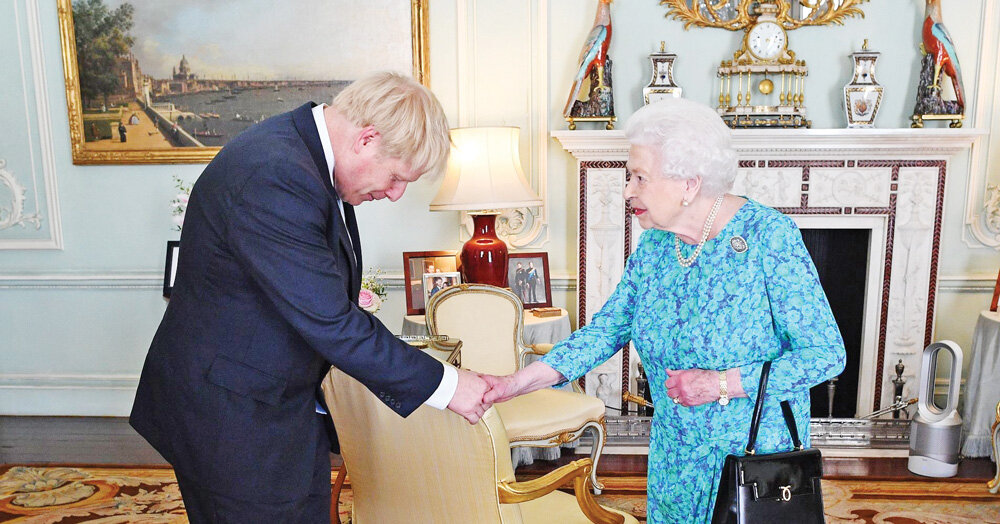TEHRAN- Following a request from British Prime Minister Boris Johnson, Queen Elizabeth II has prorogued the U.K.’s Parliament—temporarily shutting down the United Kingdom’s deliberative body just weeks before the deadline for a no-deal Brexit hits.
The move has caused fury, with Speaker of the House John Bercow calling it a “constitutional outrage” and Ruth Davidson, the extremely popular leader of the Scottish Conservative Party, resigning in protest.
Labor to use Parliament to try to thwart no-deal Brexit
Britain’s opposition Labor Party said it would trigger an emergency debate in Parliament next week to try to stop Prime Minister Boris Johnson taking Britain out of the European Union without a withdrawal deal.
More than three years after the country voted in a referendum to leave the bloc, the United Kingdom is heading toward its gravest constitutional crisis in decades and a showdown with the EU over Brexit, which is due to take place in just over two months’ time.
Johnson enraged opponents of a no-deal Brexit Wednesday by using a parliamentary mechanism to order the suspension of Parliament for almost a month.
The speaker of the lower house of Parliament, John Bercow, called this a constitutional outrage as it limited the time the Parliament has to debate and shape the course of British history.
Labor Party leader Jeremy Corbyn said that as soon as Parliament returned from its summer break Tuesday, his party would initiate a process to legislate against a no-deal Brexit that he said would be damaging for the jobs and the economy.
“What we are going to do is try to politically stop him [Johnson] on Tuesday with a parliamentary process in order to legislate to prevent a no-deal Brexit and also to try and prevent him shutting down Parliament in this utterly crucial period,” Corbyn told reporters.
“This country is in danger of crashing out on the 31st of October with no deal,” he said. “We have got to stop that and that is exactly what we will be doing next Tuesday.”
Five other opposition parties, including the Liberal Democrats and the Scottish National Party, later issued a joint statement with Labor calling on Johnson to let legislators vote on whether Parliament should be suspended.
Economists have widely predicted that a no-deal Brexit would deliver a damaging blow to Britain’s economy.
Three-month sterling implied volatility soared, indicating traders are bracing for more big price swings between now and the expected Oct. 31 Brexit date. JPMorgan raised the probability of a no-deal Brexit to 35 percent from 25 percent.
Johnson’s plan to suspend Parliament used the date of the Queen’s Speech - to be held on Oct. 14 and preceded by a suspension of the House of Commons - to ensure Parliament will not sit between mid-September and mid-October.
In effect, the squeezed timetable forces opponents of a no-deal Brexit in Parliament to show their hand and act in as few as four days sitting next month. Parliament returns from its summer holiday on Sept. 3.
An election is likely, lawmakers said. Jacob Rees-Mogg, a Brexit supporter who is in charge of managing government business in Parliament, said opponents were confecting “the candy-floss of outrage” and dared them to do their worst. There is a small majority against a no-deal Brexit in the 650-seat House of Commons, but it is unclear if opponents of Johnson within the Conservative Party would collapse his government in a vote of no confidence. “It does look like next week is essentially the only opportunity that Parliament will have to maintain some control over this process and ensure that it has a say before we leave without a deal,” Conservative MP David Gauke said.


No comments:
Post a Comment